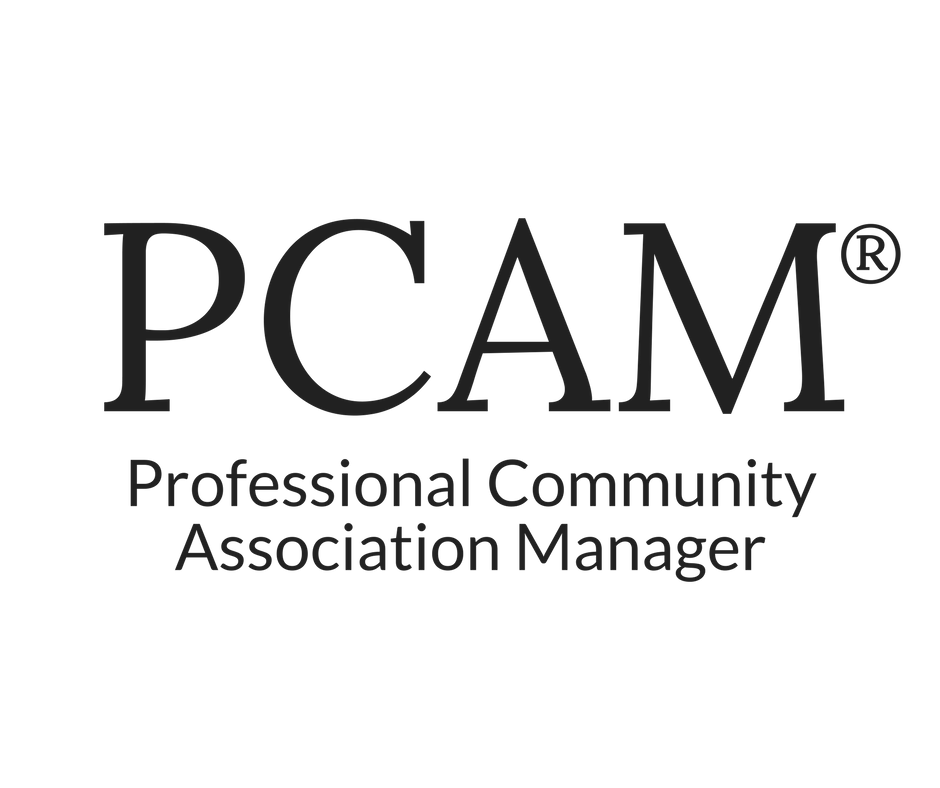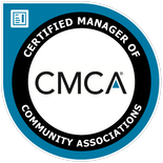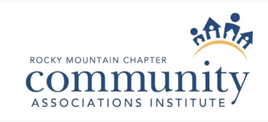HOA TERMINOLOGY
Architectural Control - Most Associations have standards when it comes to the appearance of the Association. Those standards that Homeowners must follow are considered the Architectural Control of the Community. Homeowners must submit an Architectural Request Form for Architectural Approval prior to making any changes that can affect the appearance of the Community. Many Associations have an Architectural Review Committee (ARC), Architectural Control Committee (ACC), or a Design Review Committee. (DRC)
Assessment - Associations are responsible to maintain much of the community. That maintenance cost money and it is a shared responsibility of all Homeowners of the Association. The funds that the Homeowners must pay into the Association is called an Assessment.
Articles of Incorporation - The Articles are filed with the Secretary of State and identify the Association as a nonprofit corporation.
Budget - All Associations create an annual budget which outlines the plan of expenses for the coming year. The Budget shows homeowners where all of the assessment funds are anticipated to be spent. Per CCIOA (see definition) homeowners have a right to reject the Budget.
Board of Directors - An elected or appointed group of Members of the HOA (sometimes non-members) that are in charge of all operations for the Association. The Board makes all decisions within the community.
ByLaws - A set of rules or guidelines related to the operation of an HOA Board. Describes how the Association needs to run. Meetings, Quorum, Notices, Board Members, Committees and more guidance can be found in the ByLaws
CCIOA - Colorado Common Interest Ownership Act is a Colorado State statute that governs how Homeowner Associations are to operate. You can download the full CCIOA document below.
Community Association Manager - (CAM) is the Management Company representative for your Association. They oversee all aspects of the Association. They work at the discretion of the Board of Directors and have no decision-making power within the Association. They work closely with the Board of Directors and Vendors. They also help respond to resolve any complaints or issues that come up.
Covenants, Conditions & Restrictions - (CC&Rs or Declaration) The Declaration of Covenants, Conditions & Restrictions is the "Bible" of the Association. It outlines the obligations of the HOA. Some items included are Rules, Insurance, Budget requirements and more. It informs the Board how they should run the association to protect the members interest.
Covenant Enforcement - Rules of the Association that Homeowners agree to follow when they purchase a home in the community.
Decorations - See Covenants, Conditions & Restrictions
Directors and Officers - Directors are another name for the Association Board Members. Directors are not Officers. Officers are Directors (aka Board Members) who serve in an Office, such as the Office of President, Vice President, Secretary and Treasurer. Some Associations may have officers who serve in more than one office. On very rare occasions there can be term limits. Responsibilities of the officers would be found in the By-Laws.
Fiduciary Responsibility - A responsibility that the Board of Directors has to the Members of the Association (Homeowners). The Board is entrusted by the Members to protect their property values in the Association. They do this by making sound governing decisions with the Association Property and Finances. The Boards fiduciary responsibility is to act in the best interest of the Association and not in the interest of one individual.
Governing Documents - All documents which oversee the Associations functions. These will include plat maps, Articles of Incorporation, Declarations, By-Laws, Rules & Regulations, Design Review Guidelines & State Statues.
HOA - Homeowner Association
Homeowner - A member of the Association. Members can be individuals, organizations or companies.
Meetings - There are several different types of meetings in an Association.
Operating Account - Funds that are used for the day to day operations of the association. Such as insurance, landscaping, legal, trash service, management, etc.
Quorum - The number of Board members or Homeowners who must be in attendance (in person or by proxy) at a meeting for business to be conducted.
Reserve Replacement Account - Funds that are set aside for future known expenses. Such as street replacement, roof replacement, building repairs, monument replacement.
Reserve Study - A professionally created document which outlines the Associations current Reserve Replacement Account and all future estimated expenditures. The study will provide the Association with a plan for savings to assure that the funds are available for replacement of association assets when needed.
Assessment - Associations are responsible to maintain much of the community. That maintenance cost money and it is a shared responsibility of all Homeowners of the Association. The funds that the Homeowners must pay into the Association is called an Assessment.
Articles of Incorporation - The Articles are filed with the Secretary of State and identify the Association as a nonprofit corporation.
Budget - All Associations create an annual budget which outlines the plan of expenses for the coming year. The Budget shows homeowners where all of the assessment funds are anticipated to be spent. Per CCIOA (see definition) homeowners have a right to reject the Budget.
Board of Directors - An elected or appointed group of Members of the HOA (sometimes non-members) that are in charge of all operations for the Association. The Board makes all decisions within the community.
ByLaws - A set of rules or guidelines related to the operation of an HOA Board. Describes how the Association needs to run. Meetings, Quorum, Notices, Board Members, Committees and more guidance can be found in the ByLaws
CCIOA - Colorado Common Interest Ownership Act is a Colorado State statute that governs how Homeowner Associations are to operate. You can download the full CCIOA document below.
Community Association Manager - (CAM) is the Management Company representative for your Association. They oversee all aspects of the Association. They work at the discretion of the Board of Directors and have no decision-making power within the Association. They work closely with the Board of Directors and Vendors. They also help respond to resolve any complaints or issues that come up.
Covenants, Conditions & Restrictions - (CC&Rs or Declaration) The Declaration of Covenants, Conditions & Restrictions is the "Bible" of the Association. It outlines the obligations of the HOA. Some items included are Rules, Insurance, Budget requirements and more. It informs the Board how they should run the association to protect the members interest.
Covenant Enforcement - Rules of the Association that Homeowners agree to follow when they purchase a home in the community.
Decorations - See Covenants, Conditions & Restrictions
Directors and Officers - Directors are another name for the Association Board Members. Directors are not Officers. Officers are Directors (aka Board Members) who serve in an Office, such as the Office of President, Vice President, Secretary and Treasurer. Some Associations may have officers who serve in more than one office. On very rare occasions there can be term limits. Responsibilities of the officers would be found in the By-Laws.
Fiduciary Responsibility - A responsibility that the Board of Directors has to the Members of the Association (Homeowners). The Board is entrusted by the Members to protect their property values in the Association. They do this by making sound governing decisions with the Association Property and Finances. The Boards fiduciary responsibility is to act in the best interest of the Association and not in the interest of one individual.
Governing Documents - All documents which oversee the Associations functions. These will include plat maps, Articles of Incorporation, Declarations, By-Laws, Rules & Regulations, Design Review Guidelines & State Statues.
HOA - Homeowner Association
Homeowner - A member of the Association. Members can be individuals, organizations or companies.
Meetings - There are several different types of meetings in an Association.
- Board Meetings are for the Board of Directors to address the operations of the Association. Homeowners are welcome to attend and have the opportunity to speak with the Board but should not interrupt the Board Meeting once it is convened. With limitations, homeowners do have the right to speak for or against prior to a vote of the Board on any given topic.
- Homeowner Meetings are also known as "Annual or Budget Meetings" where homeowners attend to enact business of the Association that only Homeowners can do. Such as Election of Board of Directors, Budget Ratification.
- Special Meetings are meetings called by the President of the Association or a percentage of homeowners to address a particular issue. Such as, Special Assessment Meetings
Operating Account - Funds that are used for the day to day operations of the association. Such as insurance, landscaping, legal, trash service, management, etc.
Quorum - The number of Board members or Homeowners who must be in attendance (in person or by proxy) at a meeting for business to be conducted.
Reserve Replacement Account - Funds that are set aside for future known expenses. Such as street replacement, roof replacement, building repairs, monument replacement.
Reserve Study - A professionally created document which outlines the Associations current Reserve Replacement Account and all future estimated expenditures. The study will provide the Association with a plan for savings to assure that the funds are available for replacement of association assets when needed.





